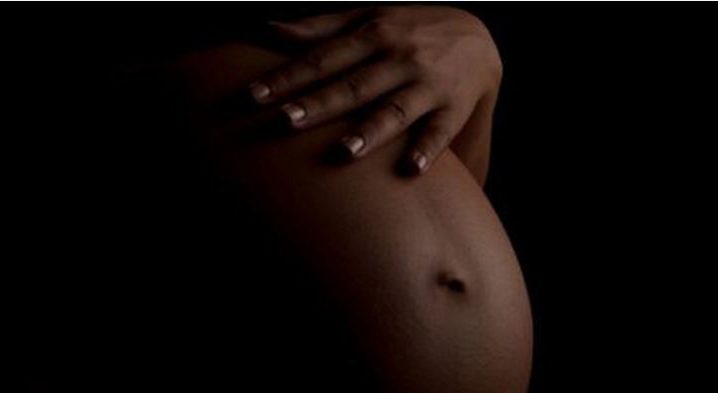Over 1.3 million cases of unintended pregnancies occurred in Nigeria in 2018, according to Family Planning latest progress report.
Similarly, over 700, 000 unsafe abortions were averted in Nigeria in 2018 due to use of modern Methods of Contraception (mMCPR).
This is revealed in a report unveiled at the just concluded International Conference on Family Planning (ICFP), which took place in Kigali, Rwanda.
The report, which is entitled FP 2020: Catalyzing Collaboration 2017-2018, shows that prevention of unsafe abortion was achieved through the use of different modern contraceptives, which prevented 735, 000 unsafe abortions in the year 2018.
This figure is higher than what obtained in 2012 and 2017 respectively. In 2012, the number of abortions that was prevented was put at 532, 000, while 679, 000 were averted in 2017.
Similarly, over two million unintended pregnancies were prevented by Nigerian women in 2018 as a result of the use of mMCPR. In 2012, a total of 1, 491, 000 pregnancies were averted, while 1, 904, 000, were achieved in 2017, and 2, 060, 000, were prevented in 2018.
The report also reveals that in spite of the increase in the number of Nigerian women who use contraceptives in 2018, a total of 1, 371, 000 unintended pregnancies occurred.
According to the report, unintended pregnancies, are the number of pregnancies that occurred at a time women ( and their partners did not want additional children or wanted to delay the next birth.”
Another area covered by the report is the Contraception Prevalence Rate (CPR). Only 13.8 per cent of women aged 15-49 are using modern contraceptive methods in Nigeria with a slight difference with what obtained in 2017. In 2012, 11.8 per cent of women used contraception methods in the country.
Also, the percentage of women with an unmet need for modern method of contraception (married/in union) in 2018 is put at 24.8 per cent, while it was 22.5 per cent in 2012.
The report also reveals that in spite of the increase in the number of Nigerian women who use contraceptives in 2018, a total of 1, 371, 000 unintended pregnancies occurred.
However , most popular or commonest contraceptive methods used in Nigeria are condoms, closely followed by injectables and pills.
The report also reveals the level of commitment made by the government of Nigeria during the launch of the policy. “The Federal Government in collaboration with other key stakeholders pledged to achieve a Contraceptive Prevalence Rate (CPR) of 36 per cent among women by 2018.”
This, according to the report, was supposed to “enhance maternal and child survival, thereby contributing to the government of Nigeria’s initiative to save one million lives by 2015.
“In addition to Nigeria’s current annual commitment of $3 million for the procurement of reproductive health commodities, Nigeria commits $8.35 million annually over the next four years. This increases Nigeria’s total commitment for the next four years from $12 million to $45.4 million, an increase of almost 300 per cent,” the report adds.
So far, report says domestic government spending on family planning in Nigeria totaled $8.5 million in 2016 – compared to $19 million in Kenya and $8.1 million in Burkina Faso.
READ ALSO: JUST IN: Despite Its Population Concerns, ICFP 2018 Opens in Kigali without Nigeria
Produced by Family Planning 2020 (FP2020), a leading global partnership that supports the rights of women and girls to decide -freely and for themselves whether, when, and how many children they want to have, the report is described by organizers as groundbreaking and a reference point in family planning.
Click to view or download>> FP 2020 REPORT
In the world’s 69 lowest-income countries, the report shows that “more than 317 million women and girls are now choosing to use a modern method of contraception. This is 46 million more users than in 2012, the year FP2020 was launched, and is 30 per cent higher than the historic trend,” organizers said.
“Between July 2017 and July 2018, the use of modern contraception prevented more than 119 million unintended pregnancies, 20 million unsafe abortions and 137, 000 maternal deaths, according to them.
Speaking on the report, Beth Schlachter, Executive Director of Family Planning 2020, said “women represent half of the world population, and there can be no healthy population globally without reproductive health care,” adding “As we continue to build the framework for Universal Health Coverage, we must ensure access to full, free and voluntary contraception is included for all women and girls.”
The report also shows how better access to family planning can deliver a powerful ‘demographic dividend ‘ that can help transform economies, as birthdates drop and the ratio of adults to dependent children increases. With fewer dependents to support, a country can invest more in education, infrastructure and other productivity-enhancing measures.
“Family planning empowers women, and empowered women are economic dynamos: joining the labour force, starting their own own businesses, and investing in their communities. This sparks a ripple effect that generates vast benefits across society, driving productivity, prosperity, and sustainability,” Schlachter said.
The 2018 International Conference on Family Planning was co-sponsored by the Government of Rwanda and the Bill and Melinda Gates Institute for Population and Reproductive Health at the Johns Hopkins Bloomberg School of Public Health.











